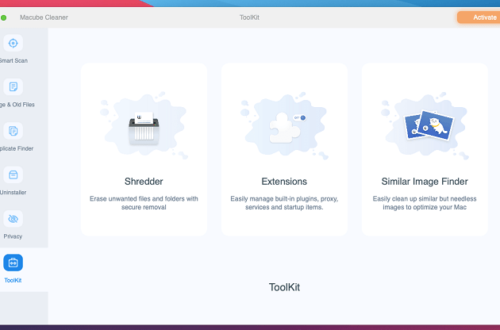Event planning templates free are pre-designed documents that provide a structure and framework for organising and managing events. These templates are usually customizable and can be adapted to suit the specific needs of your event.
Free event planning templates can be found online and are a cost-effective way to help you plan and execute successful events. These templates typically include sections for tasks such as budgeting, venue selection, vendor management, guest list creation, and event promotion.
Using an event planning template free can save time and reduce the risk of overlooking important details during the planning process. They can also help you stay on track and ensure that all aspects of your event are well-coordinated and executed smoothly.
What is an event planning template?
An event planning template free is a pre-designed document or set of documents that serve as a guide for organising and managing events. These templates typically include a comprehensive checklist of tasks and activities that need to be completed for a successful event.
Event planning templates can come in various formats, including spreadsheets, word processing documents, or specialised software programs. These templates are usually customizable, allowing you to tailor them to your specific needs and the requirements of your event.
An event planning template free may include sections for various aspects of event planning, such as:
- Budgeting: This section may include details on projected expenses, revenue streams, and financial goals for the event.
- Venue selection: This section may include a list of potential venues, criteria for selecting a venue, and details on how to negotiate a contract with the selected venue.
- Vendor management: This section may include a list of potential vendors, criteria for selecting vendors, and details on how to negotiate contracts with vendors.
- Guest list creation: This section may include details on how to create a guest list, how to manage RSVPs, and how to track attendance.
- Event promotion: This section may include details on how to create and implement a marketing and promotion plan for the event, including social media, email marketing, and other promotional activities.
Using an event planning template can help you stay organised and on track during the event planning process. By following a pre-designed framework, you can ensure that you don’t overlook important details and that all aspects of the event are well-coordinated and executed smoothly.
How do you create an event planning sheet?
Creating an event planning sheet involves breaking down the event planning process into manageable tasks and organising them in a structured format. Here are the steps to create an event planning sheet:
- Determine the purpose of the event: Define the objectives and goals of the event to ensure that all planning efforts align with the intended outcomes.
- List all necessary tasks: Make a comprehensive list of all the tasks that need to be completed for the event to be successful. This may include tasks such as venue selection, budget planning, catering, decorations, guest list management, and more.
- Assign deadlines: Assign a deadline for each task on the list to ensure that everything is completed on time.
- Prioritise tasks: Determine which tasks are critical to the success of the event and prioritise them accordingly.
- Organise tasks into categories: Organise tasks into categories such as pre-event planning, event day tasks, and post-event tasks.
- Create a timeline: Create a timeline that outlines when each task needs to be completed to stay on track.
- Assign responsibilities: Assign specific tasks to team members and ensure that everyone knows what they are responsible for.
- Monitor progress: Regularly review progress to ensure that everything is on track and make adjustments as necessary.
- Update the event planning sheet: As the event planning process progresses, update the event planning sheet to reflect any changes or new tasks that arise.
Creating an event planning sheet can be time-consuming, but it can help ensure that all aspects of the event are well-coordinated and executed smoothly. By breaking down the planning process into manageable tasks and assigning responsibilities, you can stay organised and on track to create a successful event.
How do you write an event plan sample?
Writing an event plan sample involves outlining the key details of your event and organising them in a structured and easy-to-follow format. Here are the steps to write an event plan sample:
- Define the purpose of the event: Begin by defining the objective of your event. What is the event’s goal, and what outcomes do you hope to achieve?
- Determine the event type: What type of event are you planning? Is it a conference, a fundraiser, a concert, or something else?
- Identify the target audience: Who is your target audience, and what are their interests and needs? This will help you tailor the event to the needs of your audience.
- Choose a date and time: Select a date and time that is convenient for your target audience and that does not conflict with other major events.
- Select a venue: Choose a venue that is suitable for your event and can accommodate your expected number of attendees. Make sure to consider factors such as location, capacity, accessibility, and cost.
- Develop a budget: Create a budget that outlines all anticipated expenses and projected revenue. This will help you stay on track financially throughout the planning process.
- Create a timeline: Create a timeline that outlines all tasks and deadlines leading up to the event, including tasks such as promotion, ticket sales, vendor selection, and more.
- Develop a marketing plan: Develop a marketing plan that outlines how you will promote the event and reach your target audience, including channels such as social media, email marketing, and more.
- Finalise event details: Once all aspects of the event have been planned and organised, finalise the event details, including guest list management, catering, entertainment, and any additional details.
- Monitor progress: Monitor progress regularly throughout the planning process to ensure that everything is on track and make adjustments as necessary.
Writing an event plan sample involves careful planning and attention to detail. By following a structured format and considering all key aspects of the event, you can create a successful event that meets the needs of your target audience and achieves your desired outcomes.
How does event management work?
There are seven key elements of event management that are essential for planning and executing a successful event. These elements are:
- Define the event objective: This involves defining the goal and purpose of the event. It is important to have a clear understanding of what you want to achieve with the event, so that all planning efforts can be aligned with the desired outcomes.
- Set a budget: Developing a realistic budget is critical to the success of the event. This involves estimating all the costs associated with the event and determining how much money is available to spend.
- Choose the venue: The venue is an important factor that can impact the success of the event. It is important to choose a venue that is appropriate for the type of event being planned and that can accommodate the expected number of attendees.
- Develop a marketing and promotion plan: A marketing and promotion plan is necessary to reach the target audience and generate interest in the event. This can include various channels such as social media, email marketing, traditional advertising, and more.
- Plan event logistics: This involves planning all the logistical details of the event, such as transportation, catering, accommodations, equipment rentals, and more. These details can vary widely depending on the type and size of the event.
- Manage vendors and suppliers: Vendors and suppliers are an important part of event planning, and it is important to choose reliable partners who can provide quality products and services. This includes negotiating contracts, managing payments, and ensuring that all vendors meet the agreed-upon standards.
- Evaluate the success of the event: After the event, it is important to evaluate its success to determine whether it met the desired objectives and identify areas for improvement. This includes gathering feedback from attendees, analysing data, and reviewing the event’s financial performance.
By considering these seven key elements of event management, event planners can ensure that all aspects of the event are well-coordinated and executed smoothly. This can help to create a memorable and successful event that meets the needs of attendees and achieves the desired outcomes.
Free event planning template Excel
An event planning template free in Excel is a tool that can help event planners to organise and manage their event planning tasks more efficiently. There are various free event planning templates available in Excel that can be easily downloaded and customised to suit the needs of a specific event.
Here are some common features that you can find in a free event planning template in Excel:
- Budget planning: This feature allows you to create a budget for your event and track all expenses related to it.
- Task list: This feature allows you to create a list of all tasks that need to be completed for the event, assign deadlines, and track their progress.
- Guest list: This feature allows you to create a list of all guests who will be attending the event, including their contact information and RSVP status.
- Vendor list: This feature allows you to create a list of all vendors who will be providing services for the event, such as catering, decorations, and entertainment.
- Timeline: This feature allows you to create a timeline of all key events leading up to the event, such as when invitations will be sent, when vendors need to be booked, and when final payments are due.
- Marketing plan: This feature allows you to create a plan for promoting the event, including social media posts, email marketing, and other promotional activities.
- Seating plan: This feature allows you to create a seating plan for guests, including table assignments and seating arrangements.
By using a free event planning template in Excel, you can streamline the planning process and ensure that all aspects of the event are well-organised and executed. It can also help you stay on track with your budget and timelines, and provide a comprehensive overview of the event planning progress.
Event planning checklist
An event planning checklist is a comprehensive list of all the tasks and activities that need to be completed for an event. It is a tool that can help event planners to stay organised, focused, and ensure that nothing is missed during the event planning process.
The checklist can vary depending on the type and size of the event, but generally includes the following categories:
- Pre-Event Planning: This includes all the planning activities that need to be done before the event. This can include defining the event objectives, setting a budget, selecting the venue, identifying vendors and suppliers, developing a marketing plan, and more.
- Event Logistics: This includes all the logistical details of the event, such as transportation, catering, accommodations, equipment rentals, and more.
- Event Production: This includes all the activities related to the production and execution of the event, such as stage design, lighting, sound, video production, and more.
- Guest Management: This includes all the activities related to managing the guests, such as invitations, registration, seating arrangements, and more.
- Post-Event Activities: This includes all the activities that need to be done after the event, such as conducting evaluations, analysing data, paying vendors, and more.
The checklist can be created in various formats, such as a spreadsheet, a Word document, or a specialised event planning software. It can also be customised to suit the specific needs of the event and the preferences of the planner.
By using an event planning checklist, event planners can ensure that all necessary tasks and activities are completed in a timely and organised manner. This can help to reduce stress, increase efficiency, and improve the overall success of the event.
Event planning template word doc
An event planning template free in Word is a document that can help event planners to create a comprehensive plan for their event. It can be customised to fit the specific needs and requirements of the event, and provides a structured framework for organising all the key details of the event.
Here are some common features that you can find in an event planning template in Word:
- Event Overview: This section provides a brief overview of the event, including the event name, date, time, location, and purpose.
- Budget: This section provides a detailed breakdown of the event budget, including all expenses and revenue streams.
- Task List: This section provides a list of all the tasks that need to be completed for the event, including deadlines and responsible parties.
- Vendor List: This section provides a list of all vendors and suppliers involved in the event, including contact information, services provided, and costs.
- Timeline: This section provides a detailed timeline of all activities leading up to the event, including when tasks will be completed and when payments are due.
- Marketing Plan: This section provides a plan for promoting the event, including marketing channels, messaging, and target audience.
- Guest List: This section provides a list of all guests who will be attending the event, including contact information, RSVP status, and any special needs or requirements.
An event planning template free in Word can be easily customised by event planners to meet the specific needs of their event. It can also be shared with other members of the event planning team, and serves as a central document for tracking progress and staying organised throughout the planning process.
By using an event planning template in Word, event planners can save time and reduce stress, ensuring that all key details of the event are accounted for and organised in a single document.
How should my event planning template look?
An event planning template free is a comprehensive document that outlines all the necessary details and tasks that need to be completed for a successful event. The specific elements of an event planning template can vary depending on the type and size of the event, but here are some key elements that should be included in most event planning templates:
- Event Details: This section should include all of the basic details about the event, such as the name, date, time, location, and purpose.
- Budget: This section should include a detailed breakdown of the event budget, including all expenses and revenue streams.
- Task List: This section should include a list of all the tasks that need to be completed for the event, including deadlines and responsible parties.
- Timeline: This section should include a detailed timeline of all activities leading up to the event, including when tasks will be completed and when payments are due.
- Vendor List: This section should include a list of all vendors and suppliers involved in the event, including contact information, services provided, and costs.
- Marketing Plan: This section should include a plan for promoting the event, including marketing channels, messaging, and target audience.
- Guest List: This section should include a list of all guests who will be attending the event, including contact information, RSVP status, and any special needs or requirements.
- Event Logistics: This section should include all of the logistical details of the event, such as transportation, catering, accommodations, equipment rentals, and more.
- Event Production: This section should include all the activities related to the production and execution of the event, such as stage design, lighting, sound, video production, and more.
- Post-Event Activities: This section should include all the activities that need to be done after the event, such as conducting evaluations, analysing data, paying vendors, and more.
An event planning template free can be created in various formats, such as a spreadsheet, a Word document, or a specialised event planning software. It can also be customised to suit the specific needs of the event and the preferences of the planner.
By including all the necessary elements in your event planning template, you can stay organised and focused throughout the planning process, reduce stress, and increase the chances of a successful event.
Free event planning template Google Sheets
A free event planning template free in Google Sheets is a pre-designed spreadsheet that event planners can use to organise and track all the important details of an event. Google Sheets is a cloud-based spreadsheet program that is part of the Google Suite, which means that planners can access their templates from anywhere with an internet connection.
Here are some common features that you can find in a free event planning template in Google Sheets:
- Event Details: This section provides a space to include all the basic details about the event, such as the event name, date, time, location, and purpose.
- Budget: This section provides a detailed breakdown of the event budget, including all expenses and revenue streams, and automatically calculates totals and balances.
- Task List: This section provides a list of all the tasks that need to be completed for the event, including deadlines, responsible parties, and progress tracking.
- Timeline: This section provides a detailed timeline of all activities leading up to the event, including when tasks will be completed and when payments are due, and can include automatic alerts and reminders.
- Vendor List: This section provides a list of all vendors and suppliers involved in the event, including contact information, services provided, and costs, and can include automatic calculations and payment tracking.
- Marketing Plan: This section provides a plan for promoting the event, including marketing channels, messaging, and target audience, and can include automatic analytics tracking.
- Guest List: This section provides a list of all guests who will be attending the event, including contact information, RSVP status, and any special needs or requirements, and can include automatic reminders and confirmations.
A free event planning template free in Google Sheets can be easily customised by event planners to meet the specific needs of their event. It can also be shared with other members of the event planning team, and serves as a central document for tracking progress and staying organised throughout the planning process.
By using a free event planning template in Google Sheets, event planners can save time and reduce stress, ensuring that all key details of the event are accounted for and organised in a single document.
Faqs
Q: What are event planning templates?
A: Event planning templates are pre-designed documents that provide a framework for organising and managing various aspects of an event. They can help event planners save time and effort by providing a starting point for developing a customised plan.
Q: Are there any free event planning templates available?
A: Yes, there are many free event planning templates available online. These templates can be downloaded and customised to fit the specific needs of an event.
Q: What types of events can be planned using event planning templates?
A: Event planning templates can be used for a wide range of events, including conferences, weddings, birthdays, corporate events, and more.
Q: What information should be included in an event planning template?
A: An event planning template should include details such as the event date, time, and location, as well as a list of tasks that need to be completed before, during, and after the event. It may also include sections for budgeting, vendor management, guest list management, and marketing/promotion.
Q: How do I customise an event planning template?
A: To customise an event planning template, simply download the template and open it in a program such as Microsoft Word or Google Docs. You can then edit the template to add or remove information, change the layout, and adjust the formatting to fit your needs.
Q: Can event planning templates be used for large events?
A: Yes, event planning templates freecan be used for events of any size. However, for very large events, it may be necessary to customise the template or use multiple templates to ensure that all aspects of the event are covered.
Conclusion
In conclusion, event planning templates free are a useful tool for organising and managing various types of events. There are many free templates available online, which can be customised to fit the specific needs of an event. These templates typically include information on the event date, time, location, tasks, budgeting, vendor management, guest list management, and marketing/promotion. By using an event planning template, event planners can save time and effort, while ensuring that all aspects of the event are covered.





